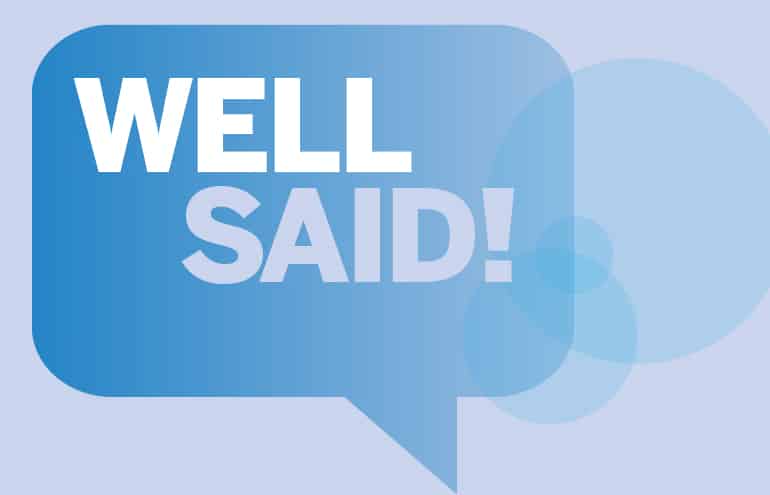Most lawyers struggle with negotiating price with prospects and clients. Part of this is the product of lawyers’ personality type, which is generally conflict-averse. Often, lawyers fear that inartful price discussions could cause them to overplay their hand and lose the business. However, the biggest negotiation roadblock comes from having a singular focus on money.
The Role of Money
Money is a factor, but it’s rarely the defining one in any consideration. Surveys consistently show that it isn’t the No. 1 factor in taking or remaining at a job, and it’s not the No. 1 factor in most “considered” purchases. Whether we’re talking about salary or purchase price, as long as the money is in the right vicinity, other, nonfinancial, considerations make a big difference.
Mark McCormack, who founded International Management Group and made it the world’s most powerful sports marketing agency, has a quote that is instructive for lawyers:
“I find it helpful to try to figure out in advance where the other person would like to end up — at what point he will do the deal and still feel like he’s coming away with something. This is different from ‘how far will he go?’ A lot of times you can push someone to the wall, and you still reach an agreement, but his resentment will come back to haunt you in a million ways.”
My late father, a lifelong salesman, favored a simpler version:
“Don’t try to take the last nickel off the table.”
“Conflict Currencies” and the “Resolution Ratio”
Amy Lieberman, a Phoenix, Ariz., mediator, has an interesting approach to pricing. Her article “Peace of Mind: The Resolution Ratio,” in Attorney at Law magazine, offers a very useful framework for approaching negotiation.
Lieberman introduces the idea of “conflict currencies” that — in addition to money — include acknowledgment, appreciation, respect, trust, communication, fear and process.
She adds the “resolution ratio,” which argues that for each negative, or debit, introduced into a negotiation, you’ll need to offer three positives, or credits, to “even the score, restore balance, and bring peace of mind” necessary to reach a reliable agreement without resentment. Her key point is that “a harm cannot be remedied by simply one act.”
Beyond Money
The point that lawyers can apply to their business development efforts is to expand your concept of tradable value beyond money.
This is particularly important when your client is trying to negotiate more favorable pricing. Besides a price reduction, what else can you offer that your client might accept in lieu of money?
Let’s say your client is explicitly directed by senior management to reduce overall legal spending. The easiest way is to insist on a price concession. The entire savings target ends up coming from you. When that happens, any strategy you try that would result in the client going home empty-handed cannot work.
Instead, focus on the overall cost-reduction goal, which includes many more factors than top-line price. What can you offer that helps achieve the cost-reduction goal and doesn’t cost you?
Think About Value More Broadly
Which of the client’s processes or protocols result in redundancy or rework that costs them money? How much unnecessary and expensive back-and-forth can you eliminate at their end or yours? Maybe this is an opportunity to get the client to embrace a technological solution that would reduce both your costs.
If the power relationship with the client means you must accept a painful price concession, what can you get in exchange that would result in comparable profitability? (After all, it’s not what you charge that matters, but what you keep.)
In exchange for price concessions on the labor-intensive work, would they be willing to let you do additional work that you can automate or scale to a greater degree, reducing your overall cost and raising the overall profitability of the account?
Legal services have matured to where few lawyers enjoy much pricing power for traditional services. The thing to do in response is to get very creative in defining what other “currencies” you can trade that cost you little or nothing.
Beyond Negotiation
Understand, though, that even if you negotiate well, it’s a Band-Aid. The price of mature services always declines. Plan for another round of price negotiation in a year or two, and periodically thereafter.
Before you can draw a line in the pricing sand, you have to have a replacement source of revenue.
Start investigating ways to transition your practice away from price-sensitive areas and toward emerging problems and issues that your expertise can make a difference with. Begin shifting your proactive BD investments to those areas so that at some point you can afford to fire a client whose price-reduction needs would put you out of business.
Price negotiations are a reliable sign that it’s time to start thinking about exiting that part of your practice in favor of something that offers greater value to both clients and you.
Illustration ©iStockPhoto.com
Subscribe to Attorney at Work
Get really good ideas every day for your law practice: Subscribe to the Daily Dispatch (it’s free). Follow us on Twitter @attnyatwork.

















